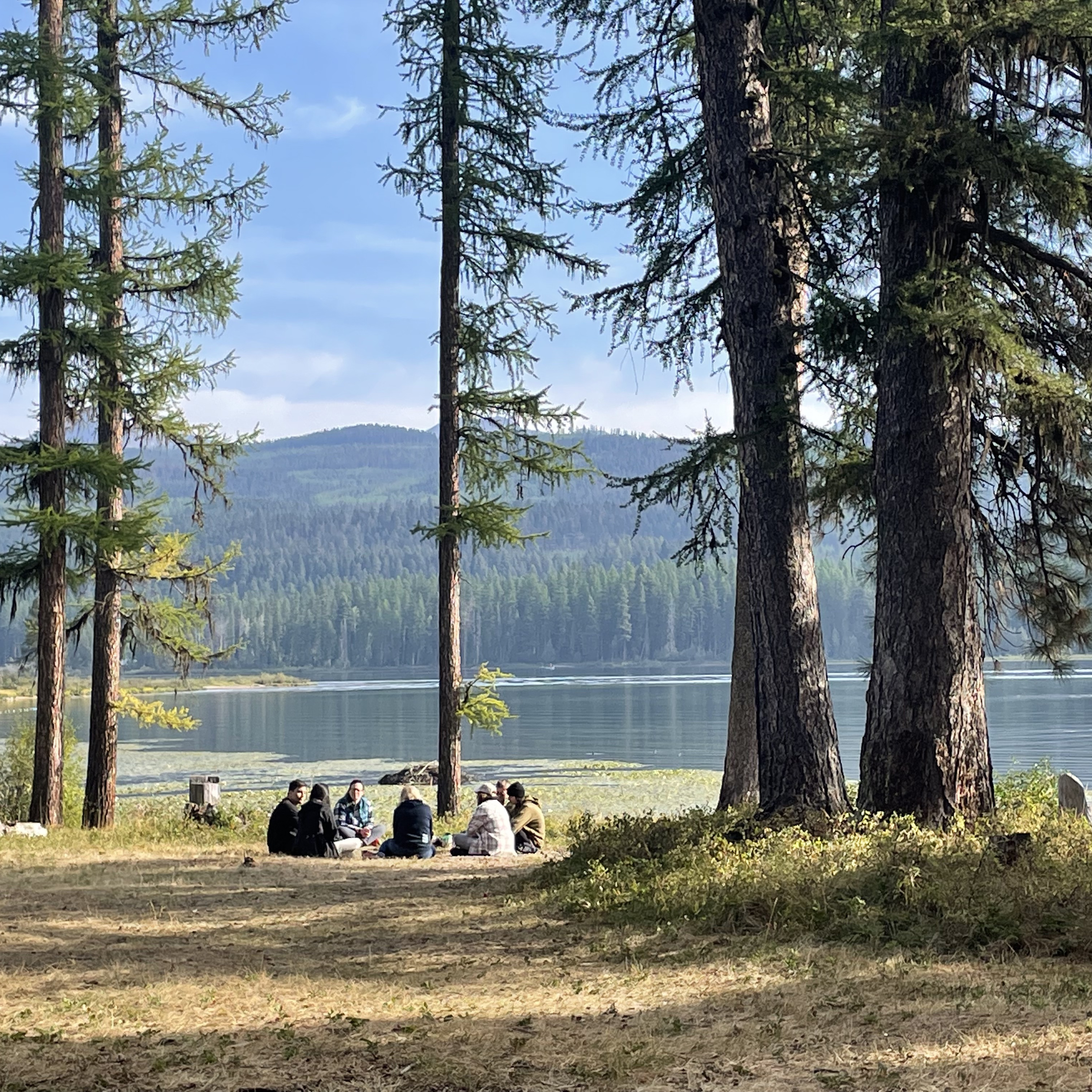Catie DeMets: EVST MS Graduation Speech 2018
Hi everyone, and welcome on this beautiful day to this beautiful basement. I want to begin by saying congratulations to all of the 2018 environmental studies graduates. Undergrads and grad students alike, the senioritis-laden limp to the finish line is no small feat, but here we are. So on behalf of everyone here today, congrats on an amazing job.
I’d be remiss if I didn’t thank all of the families, friends, including my cohort, faculty and staff, especially Susan (my hero), and community mentors who have supported us through this journey. Thank you to all of these people for your unwavering support.
The faculty asked me to say a few words on behalf of our graduate class, and I’m so honored and humbled to do this for such an outstanding group of individuals and leaders. But in thinking about writing this, I really struggled with how I could possibly sum up all of the unique and truly incredible experiences of each of you in our cohort. In the end, I decided to talk about a concept that has deep roots in the world of wine: terroir.
Terroir is a fancy term that wine experts use to describe the complex geographic and environmental qualities that shape a wine’s character. I’d like to propose a much simpler definition: the taste of a place.
I can confidently say that we all spent a lot of time in grad school wading through topics with an overwhelming amount of complexity and detail and jargon, and maybe even ending our days with a sense of defeat because of the vast nature of the problems we EVSTers seem to gravitate towards—policy, the food system, education, cycles of oppression, environmental restoration and justice—the list goes on.
A lot of graduate programs teach students to step up to the diving board’s edge and dive into the pool that is their area of study…and then just keep swimming around in all of the complexities that come with a new topic. But what the environmental studies program really taught us, and what I so admire about all of you, is how to step up to the diving board, dive into the complexity of our giant topics…then come back up for air, maybe even get out of the pool.
EVST has pushed us to distill all we’ve learned, all the research we’ve done, and communicate it meaningfully and broadly. Our faculty, mentors, and each other have challenged us to consider the impact of our work and find ways to make all of our toiling over complicated papers and research into something more meaningful for others.
We EVSTers can BE the wine makers and get down with talking about the tannins, acidity, sugars, minerality…but we can also be the sommeliers, finding ways to communicate all of that, but in a simpler, more accessible and useful form: a sweet, fruity white that lingers on your tongue.
Through this program, we’ve put down our own roots here, at least for a little while. I think we’ve each been influenced by the terroir of Montana, our faculty, friends, mentors, the mountains. But through our incredibly diverse and impactful body of work in Environmental Studies, we’ve also influenced the terroir of this community. We’ve made the metaphorical, and for the PEAS students, literal, soil of Missoula richer, more fertile, and more resilient.
Because of your work—our work—we’ve contributed to the taste—the terroir—of this place. And I know that we’re poised to take this deep sense of place-based complexity and uniqueness each new place we go.
In short, I want to wish all of you my deepest congratulations. And I pretty much came to grad school so I could say this: we are now Masters. Thank you so much.
